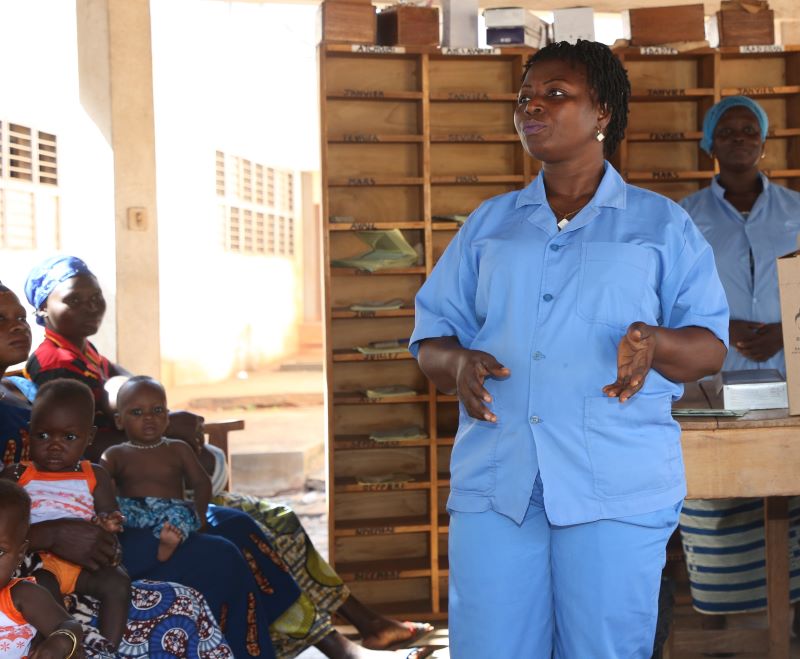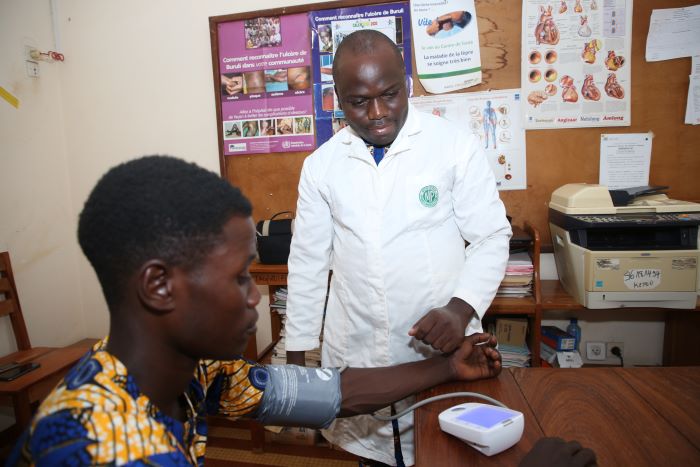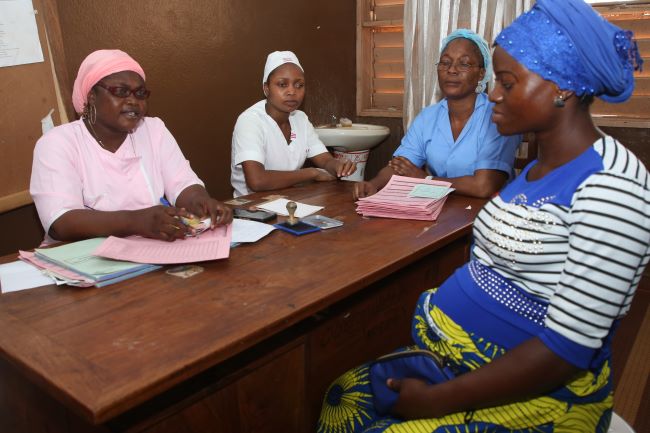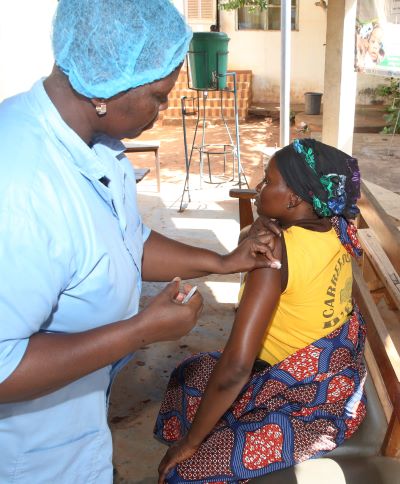Providing Respectful and High-Quality Care to Reduce Maternal Mortality in Benin
Providing Respectful and High-Quality Care to Reduce Maternal Mortality in Benin

Management Sciences for Health (MSH) recently celebrated the completion of the US Agency for International Development (USAID) Integrated Health Services Activity (IHSA) in Benin, of which we were the lead implementer, along with a group of local partners. One key activity of this project was strengthening maternal, neonatal, and childcare with a multi-pronged approach. Through the use of an On-Site Training and Supervision tool (OTSS), providers strengthened their knowledge and engaged in ongoing skill-building. Meanwhile a Leadership Development Program (LDP+) helped improve governance and foster institutional capacity.
The following photo essay brings to life how these interventions complemented one another to the benefit of the patients, improving the quality of and access to maternal, newborn, and child health in Benin.

As the chief physician at the communal health center of Kétou in Benin’s Plateau department, Dr. Houndékon Boucheix is responsible for making sure patients receive high-quality care. He is acutely aware that the lack of local capacity can have severe repercussions on the quality of maternal health services offered by the health center, given the distressingly high maternal mortality rate within his community. “Ignorance, particularly on the part of us healthcare workers, is the primary cause of death before even considering the community,” emphasizes Dr. Houndékon.
Over the course of two years, efforts to strengthen local capacity by training health workers in Benin have yielded remarkable improvements in competencies, knowledge, and management skills within both this health facility and others nationwide. Consequently, healthcare workers are now able to provide higher-quality health services and save more lives. One key initiative driving this progress is the On-Site Training and Supportive Supervision (OTSS) approach, driven by USAID through its Integrated Health Services Activity (IHSA), implemented by Management Sciences for Health (MSH) and its partner for the trainings, the Centre de Recherche en Reproduction Humaine et en Démographie (CERRHUD). Using this approach, IHSA assisted the Ministry of Health by training coaches and providing continuous support to health workers. This enabled them to stay up to date with best practices and enhance their skills, particularly in areas of safe deliveries and prenatal and postnatal care. Monthly meetings facilitate the work of quality improvement teams allowing them to prioritize critical issues, propose effective solutions, and monitor progress of priority actions. This systematic approach enabled them to track the outcomes and impact of their actions.

However, the success of these efforts relies on long-term improvements in governance. In order to foster sustainable institutional capacity, IHSA relied on MSH’s Leadership Development Program Plus (LDP+), which was implemented in the Plateau region between June and December 2021. The LDP+ fosters a participatory, results-oriented, action-based learning process, with a focus on achieving results. During this process, all staff members at the health facility identified priority challenges, such as maternal mortality in this case, and developed solutions specifically tailored for the local context.
These solutions encompassed various activities, such as the reorganization of the maternity ward, ensuring continuous postpartum surveillance, and implementing measures to remove financial barriers to care for pregnant women with low resources.
Dr. Houndékon highlights the interconnectedness of these two approaches. “Thanks to coaching and reviews, we were able to focus our attention where it was needed. With LDP+, we set deadlines for ourselves to reach the objective [of reducing maternal mortality] and procedures to achieve this objective.”

Following the implementation of these approaches, the health center witnessed improvements in the quality of services offered, particularly for women and children. When a pregnant woman experienced severe bleeding and required urgent care, her health providers demonstrated the appropriate response by performing an emergency C-section, thus saving both the mother and baby. This success story is not an isolated incident.
In 2021, the commune of Kétou had reported 12 maternal deaths. In 2022 that number dropped to seven. In the first four months of 2023 a single maternal death occurred. These outcomes serve as a testament to the effectiveness of the combined efforts and the impact of the approaches used to reduce maternal mortality and improve healthcare services within the community.
Dr. Houndékon explains, “We are better organized, work conditions are more attractive because we learned from coaching and from the reviews, and now, we can say that the quality of our services is better than one or two years ago. We thank IHSA for helping us build the capacity to achieve these considerable results.”
Although IHSA concluded in October 2023, ensuring the sustainability of these activities for the wellbeing of Beninese women remains a priority for the local government. The Directorates for Health continue working to integrate coaching into routine activities.